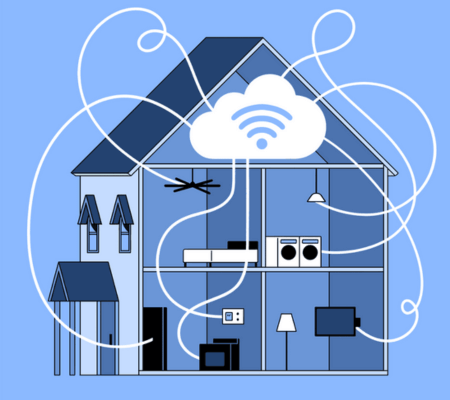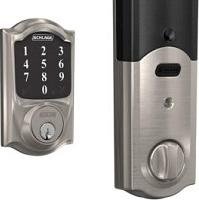The security systems industry is a rapidly growing sector that encompasses a wide range of products and services designed to keep people and property safe. From home security systems to commercial surveillance equipment, the industry is constantly evolving to meet the changing needs of consumers and businesses alike.

Table of Contents
ToggleSecurity Systems Industry: Trends and Innovations in the Security Systems Industry
One of the key drivers of growth in the security systems industry is the increasing demand for advanced technology and automation. As more and more devices become connected to the internet, there is a growing need for security systems that can protect these devices from cyber threats and other forms of attack. Additionally, the rise of smart homes and businesses has created new opportunities for security system providers to offer integrated solutions that can be controlled from a single interface.
Despite the many benefits of security systems, there are also concerns about privacy and the potential for abuse. As the industry continues to grow, it will be important for companies to address these concerns and ensure that their products and services are designed with the highest standards of security and privacy in mind. By doing so, they can help to build trust with consumers and ensure the long-term success of the industry as a whole.
Overview of the Security Systems Industry
The security systems industry is a rapidly growing sector that is responsible for providing a wide range of security solutions to businesses, homes, and other organizations. The industry includes a variety of products and services such as surveillance cameras, access control systems, fire alarms, and intrusion detection systems.
One of the primary drivers of growth in the security systems industry is the increasing demand for security solutions due to rising crime rates, terrorism, and other security threats. In addition, the development of new technologies such as cloud-based security systems, artificial intelligence, and machine learning has led to the creation of new and innovative security solutions.
JWM Guard Tour Patrol System, 125kHz RFID Security Guard Equipment with LCD Screen, Professional Guard Monitoring Attendance System for Hotels, Industrial Park, Free Software
The security systems industry is highly competitive, with numerous companies vying for market share. Some of the major players in the industry include ADT, Honeywell, and Bosch Security Systems. These companies offer a wide range of products and services and have a global presence.
Overall, the security systems industry is poised for continued growth in the coming years as the demand for security solutions continues to increase. With new technologies and innovations being developed, the industry is likely to become even more competitive and dynamic in the future.
Types of Security Systems
Security systems are designed to protect people, property, and assets. There are several types of security systems available in the market, each designed for a specific purpose. In this section, we will discuss the three main types of security systems: Residential Security Systems, Commercial Security Systems, and Industrial Security Systems.
Residential Security Systems
Residential security systems are designed to protect homes and families. They are typically installed in homes, apartments, and condos. These systems can include:
- Burglar alarms
- Video surveillance cameras
- Motion detectors
- Door and window sensors
- Smoke and fire detectors
These systems are often monitored by a central monitoring station, which alerts the authorities in case of an emergency.
Commercial Security Systems
Commercial security systems are designed to protect businesses, offices, and other commercial properties. These systems can include:
- Access control systems
- Video surveillance cameras
- Intrusion detection systems
- Fire alarms
- Panic alarms
Commercial security systems are often integrated with other systems, such as building automation systems, to provide a complete security solution.
Industrial Security Systems
Industrial security systems are designed to protect industrial facilities, such as factories, warehouses, and power plants. These systems can include:
- Perimeter security systems
- Video surveillance cameras
- Intrusion detection systems
- Fire alarms
- Gas detection systems
Industrial security systems are often designed to meet specific industry standards and regulations, such as OSHA and NFPA.
In conclusion, the type of security system you choose will depend on your specific needs and requirements. It is important to choose a reputable security company that can provide you with a customized security solution.
Key Players in the Security Systems Industry
The security systems industry is a growing market that is expected to reach $167.74 billion by 2025. With the increasing demand for security systems, there are several key players in the industry that are leading the way in innovation and technology.
ADT
ADT is one of the largest and most well-known companies in the security systems industry. They offer a wide range of security solutions for both residential and commercial customers. ADT’s products include security cameras, door and window sensors, and smart home automation systems.
ADT’s security systems are known for their reliability and ease of use. They offer 24/7 monitoring services and have a large network of trained professionals who can respond quickly to any security breach. ADT also offers a mobile app that allows customers to control their security systems remotely.
Honeywell
Honeywell is another major player in the security systems industry. They offer a wide range of products, including security cameras, motion sensors, and access control systems. Honeywell’s security systems are designed to be scalable and can be customized to meet the needs of any customer.
Honeywell’s security systems are known for their advanced technology and ease of use. They offer a mobile app that allows customers to control their security systems remotely and receive real-time alerts. Honeywell also offers 24/7 monitoring services and has a large network of trained professionals who can respond quickly to any security breach.
Johnson Controls
Johnson Controls is a global leader in the security systems industry. They offer a wide range of products, including security cameras, access control systems, and fire alarms. Johnson Controls’ security systems are designed to be integrated with other building automation systems, such as HVAC and lighting.
Johnson Controls’ security systems are known for their advanced technology and scalability. They offer a mobile app that allows customers to control their security systems remotely and receive real-time alerts. Johnson Controls also offers 24/7 monitoring services and has a large network of trained professionals who can respond quickly to any security breach.
In conclusion, ADT, Honeywell, and Johnson Controls are three of the key players in the security systems industry. They offer a wide range of products and services that are designed to meet the needs of both residential and commercial customers. With their advanced technology and 24/7 monitoring services, these companies are leading the way in innovation and security.
Technological Advancements in Security Systems
Security systems have come a long way from traditional locks and keys. With technological advancements, the security industry has seen a significant transformation in recent years. This section highlights some of the latest technological advancements in security systems.
Artificial Intelligence
Artificial Intelligence (AI) is changing the way security systems operate. AI-powered security systems can detect and respond to potential threats in real-time. They can analyze data from multiple sources, such as cameras, sensors, and access control systems, to identify anomalies and unusual behavior. AI algorithms can also learn from past events to improve their accuracy and efficiency.
Biometric Systems
Biometric systems use unique physical characteristics, such as fingerprints, facial recognition, and iris scans, to identify individuals. Biometric systems are more secure than traditional password-based systems, as they are difficult to fake or duplicate. Biometric systems are also more convenient, as users do not have to remember passwords or carry access cards.
Cloud-Based Security Systems
Cloud-based security systems are becoming more popular among businesses and homeowners. Cloud-based systems offer several advantages over traditional on-premise systems, such as remote access, scalability, and cost-effectiveness. Cloud-based systems also offer better data backup and disaster recovery options.
In conclusion, technological advancements have made security systems more efficient, reliable, and cost-effective. AI, biometric systems, and cloud-based systems are just a few examples of how technology is changing the security industry. As technology continues to evolve, we can expect to see even more innovative solutions in the future.
Market Trends in the Security Systems Industry
Growing Demand for Wireless Technology
As technology advances, wireless security systems have become increasingly popular. These systems use Wi-Fi or cellular networks to connect the various components of the security system, including cameras, sensors, and alarms. Wireless security systems offer several advantages over traditional wired systems, such as easier installation, flexibility, and scalability. Additionally, wireless systems can be accessed remotely through a smartphone or tablet, allowing for greater control and convenience.
Rise of Smart Homes and IoT
The rise of smart homes and the Internet of Things (IoT) has had a significant impact on the security systems industry. Smart home devices, such as smart locks, thermostats, and lighting, can be integrated into a security system to provide a more comprehensive and automated solution. IoT-enabled security systems can also analyze data from various sources, such as cameras and sensors, to detect and prevent security breaches.
Increasing Awareness About Security Needs
With the increasing prevalence of cyber-attacks and physical security threats, individuals and businesses are becoming more aware of their security needs. This has led to a growing demand for security systems that are more sophisticated and comprehensive. Security systems that incorporate advanced technologies, such as artificial intelligence and machine learning, are becoming more popular as they offer improved security and greater peace of mind.
Overall, the security systems industry is evolving rapidly, driven by advances in technology and changing security needs. As a result, companies in the industry must stay up-to-date with the latest trends and technologies to remain competitive and meet the needs of their customers.
Challenges Facing Security Systems Industry
The security systems industry is facing several challenges that are hindering its growth and development. In this section, we will discuss some of the most significant challenges that the industry is currently facing.
Privacy Concerns
One of the most significant challenges facing the security systems industry is privacy concerns. Many people are worried that their personal information and activities are being monitored by security systems. This concern is particularly acute in public places such as airports, shopping malls, and other crowded areas where security cameras are ubiquitous.
To address this concern, security systems companies need to be more transparent about their data collection practices. They need to clearly communicate what data they collect, how it is used, and how it is protected. They also need to provide users with more control over their data, such as the ability to delete it or opt out of data collection altogether.
High Installation Costs
Another challenge facing the security systems industry is the high cost of installation. Many businesses and homeowners are deterred from installing security systems due to the high upfront costs. This is particularly true for small businesses and homeowners who may not have the budget for expensive security systems.
To address this challenge, security systems companies need to offer more affordable options. They need to develop cost-effective solutions that provide the necessary level of security without breaking the bank. This could include offering DIY installation kits or leasing options that allow customers to pay for the system over time.
Lack of Awareness in Developing Regions
Finally, the security systems industry is facing a lack of awareness in developing regions. Many people in these regions are not aware of the benefits of security systems or how they work. This lack of awareness is hindering the growth of the industry in these regions.
To address this challenge, security systems companies need to increase their marketing and educational efforts in developing regions. They need to provide information about the benefits of security systems and how they can be used to improve safety and security. They also need to develop solutions that are tailored to the specific needs of these regions, such as low-cost systems that can be powered by solar energy.
In conclusion, the security systems industry is facing several challenges that are hindering its growth and development. These challenges include privacy concerns, high installation costs, and a lack of awareness in developing regions. To overcome these challenges, security systems companies need to be more transparent, offer more affordable options, and increase their marketing and educational efforts in developing regions.
Future of Security Systems Industry
The security systems industry is constantly evolving, and it is expected to continue to do so in the future. Here are some of the trends that are likely to shape the industry in the coming years.
Integration with Smart Devices
As smart homes become more common, security systems are increasingly being integrated with smart devices. This allows homeowners to monitor their homes remotely and receive alerts if there is any suspicious activity. In addition, smart devices can be used to automate tasks such as turning lights on and off, making it appear as though someone is home even when the house is empty.
Adoption of AI and Machine Learning
Artificial intelligence (AI) and machine learning are also likely to play a significant role in the future of the security systems industry. These technologies can be used to analyze data from security cameras and other sensors, allowing for more accurate and efficient threat detection. AI can also be used to automate tasks such as monitoring and responding to alarms, freeing up security personnel to focus on more complex tasks.
Expansion in Emerging Markets
The security systems industry is expected to see significant growth in emerging markets such as Asia and Africa. As these regions become more urbanized and wealthier, there is likely to be a greater demand for security systems to protect homes and businesses. In addition, advancements in technology are making security systems more affordable and accessible, which is likely to drive demand even further.
Overall, the future of the security systems industry looks bright, with new technologies and expanding markets driving growth and innovation.











